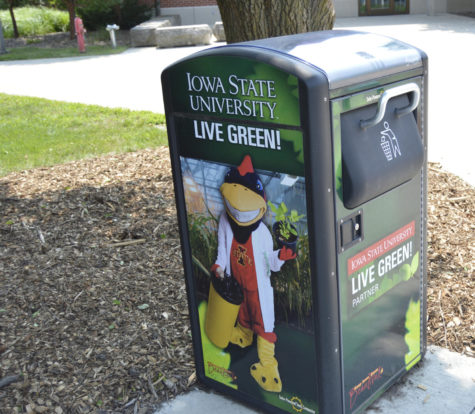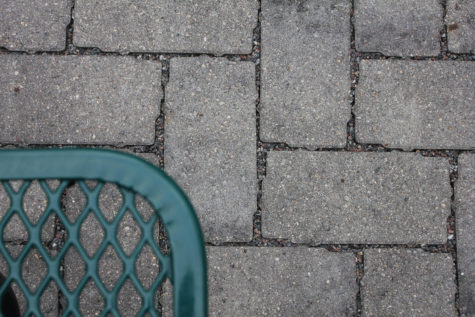The value of trash: Experts weigh benefits of Dumpster diving
April 30, 2012
There is a saying that one man’s trash is another man’s treasure. It’s the green thing to do to reuse an item versus throwing it away, but what does that mean for students Dumpster diving on campus?
Dumpster diving is the act of sifting through residential and commercial garbage to find items that still have some use in them. It cuts down on waste and provides a way for students to save money.
But who does the garbage rightfully belong to?
Some might argue that whatever they throw away is still their property, but Judy Parks, assistant city attorney for the City of Ames, said otherwise.
“The container itself and where it sits, whoever owns that property does have the rights to control who has access to it,” she said. “If they have given some kind of notice either with signage or with directly telling somebody, ‘You don’t have permission to go through this,’ then whoever is notified should respect that.”
However, students who are interested in retrieving something they’ve thrown away have a chance to reclaim their property.
“[Students] can go in to recover [their trash] once thrown in [the Dumpster]. [They’re] saying it’s abandoned, but [students] can go back and re-establish ownership of it,” Parks said.
Campus Services is responsible for collecting all the trash on campus. On average, 4,750 tons of refuse is collected per year.
Lester Lawson, manager of Facilities Planning and Management, explained how trash can be sorted into two categories.
One form of trash can be sent to the Ames Resource Recovery Center, where it is shredded and sent to the power plant for electricity. The other form cannot be sent through the shredder and therefore does not get used as fuel. Items that aren’t burnt at the Ames Power Plant would include pallets, furniture and metals.
“A lot of the pallets go out to the free wood pile and it’s recycled; all of the metal goes to Bell Salvage to be recycled,” Lawson said.
With so much trash being thrown away, it might sound tempting to sift through a receptacle, but Parks warned of the safety hazards involved with Dumpster diving.
“People may get hurt by the condition of trash that’s in Dumpsters, particularly materials that are noxious to handle,” Parks said.
“I’ve heard of people getting into [Dumpsters] that are large, they get stuck in there, they can’t get out and of course when the trash people come they just back their truck up to it, it automatically dumps in and it goes into a crusher type of vehicle.”
While Dumpster diving reuses waste, there are other outlets to reduce the amount of waste collected on campus. Merry Rankin, director of sustainability, can list a few.
Freecycle is a free online program where students can enter whatever items they want to throw away.
“The idea is, you put anything on there, not wanting anything in return, and the understanding is that the person will come to you, you don’t have to send or transport it anywhere else and it’s free,” Rankin said.
Dorm Dumpster is another program that allows students to sell things their online.
If neither of the two options sounds suitable, Rankin encourages students to donate unwanted items to the closest Goodwill or Salvation Army.









